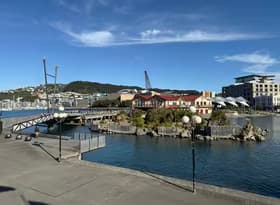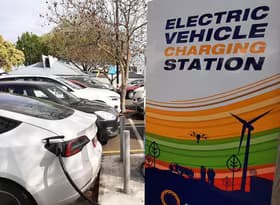World Cup on African soil
In less than 50 days Africa will host its first ever football World Cup. With all the stadiums and most of the supporting infrastructure in place concerns about South Africa’s ability to host the games have been allayed. Concerns now turn to the question of whether the massive expenditure by government will offer value to the South African taxpayer.
The question of viability cuts closes to the bone as we need to ask the same questions of ourselves when we host the Rugby World Cup next year. But the stakes are higher in a developing country as upfront expenditure on new infrastructure is far greater. And with about 40% of South Africa’s population living in absolute poverty the costs measured in terms of forsaken expenditure to meet basic human needs are extremely high.
Most of the recent mega sporting events around the world have been an economic success. The 2002 World Cup in South Korea and Japan was an exception the costs were deemed to have exceeded the benefits. The reason proffered is that football is not traditionally a major sport in Asia and domestic support was limited. This sets off alarm bells for South Africa. While football is the country’s number-one sport the majority of the population are poor which has translated into disappointing domestic ticket sales.
The South African literature on the potential for economic success is ambiguous. The most commonly referenced study by accounting group Grant Thornton is extremely upbeat, claiming a strong positive net impact on the country’s economy. Another study from Pretoria University academics is more circumspect warning that if the government is forced to raise taxes to pay for its World Cup expenditure then the economy will be worse off over the long term.
The risk of the World Cup not delivering its promised benefits has increased dramatically since the publication of these reports. The costs to the South African government of building five brand new stadiums, upgrading a further five, upgrading all the major airports and providing supporting infrastructure has blown out. The cost to government is now estimated at NZ$5.8 billion, up from the 2006 estimate of $2.9 billion.
While costs have risen projected revenue has declined with greatly reduced estimates of the number of foreign visitors to the Republic. Concerns about security, the global recession and high costs of airfares and accommodation will be resulting far fewer overseas tourists than assumed in the cost-benefit reports. The original estimate of 450,000 overseas tourists was way too optimistic and the local organising committee has now confirmed that, based on ticket sales so far, fewer than 200,000 overseas visitors are likely to arrive.
The cost-benefit reports strongly emphasise the 'intangible’ benefits of the World Cup. According to this argument the tournament will showcase the country and that will bring long term economic benefits. The positive experience of overseas football fans will supposedly result in increased future tourism and new trade links and investment.
Having just returned from a four week visit to South Africa I am sceptical about the showcasing argument. While my experiences are mere anecdotes it will be similar experiences that inform other foreign visitors decisions about returning for a holiday or investing in South Africa.
South Africa is no longer the travel bargain it used to be as prices in dollar terms have increased enormously over the past two years. To visit the Kruger National Park a family of four could expect to pay NZ$250 per night for basic accommodation plus another NZ$100 'conservation fee’ each day.
The country’s on-toll road network outside of the World Cup centres is crumbling which can make travel off the main arterials uncomfortable and time consuming. The mess of roads in rural Zululand (the heartland of opposition support) contrast starkly with the lavish new stadiums and supporting infrastructure in Durban, Polokwane and Mbombela which sit in the heart of the ruling party’s support base.
Potential investors among the World Cup fans will be scared off by the seemingly endless stories of government corruption in the South African media. There are grumblings that government contracts are hard to come by without bribes.
The maverick behaviour of some of the African National Congress party bearers will also undermine the confidence of potential investors. The outspoken Julius Malema (president of the ANC Youth League) recently promised that South Africa will emulate Robert Mugabe’s land reform policies which precipitated one of the most spectacular economic collapses the world has ever seen.
The World Cup provides an opportunity for South Africa to show the world that Africa can host one of the biggest sporting spectacles ever. By all accounts the event will be a sporting success but there is a nagging feeling that the economic benefits have been overstated and the South African public will be subsidising four weeks of sporting and viewing pleasure for the rest of the football playing world.









